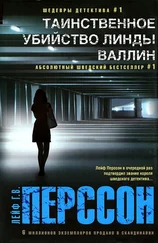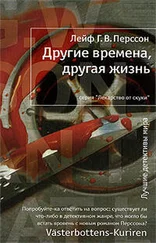A while later he started to hope again. Eleven o’clock passed without anyone else being shot, and only a few minutes later the terrorists inside the embassy suddenly released three female secretaries from among their hostages. A ray of hope in the gathering April darkness, and... maybe still, thought the head of homicide, for a tear gas attack was not something he was looking forward to. That could only end with further misery. At the same time the authorities had a good idea of how many hostages there were. A rapidly shrinking group, which would not last longer than early morning if the terrorists made good on their promise to execute one per hour.
The release came at a quarter to midnight. The head of the homicide squad had left the construction shed where he had set up his temporary command room to finally stretch his legs, take a breath of fresh air, and smoke yet another cigarette. First he saw the flash of light from the embassy building, then he felt the shaking in the ground below him, and only after that did he hear the series of explosions. The clouds of glass splinters, building material, smoke, and last of all the screams from the people inside the building. People climbing out of windows, throwing themselves out, jumping, clinging to the façade, tumbling, falling, getting up again, or remaining lying. That was how he remembered it when he thought back, in just that order: the flashes of light, the shaking, the detonations, the smoke, the screams, the people.
In contrast to the TV reporter who led the live broadcast from the scene, the head of the homicide squad had not jumped off the ground, and whether his feet did rise or spread was none of his doing in any event. On the other hand he had thought a bit. I’ll be damned, he thought, despite the fact that normally he never swore. Then he put out his cigarette and returned to his chair in the temporary command center. Clearly high time, for inside it was already a complete circus.
Half an hour later it was almost all over, and wonder of wonders, with one exception all of them — the terrorists and their hostages and his colleagues down in the basement of the embassy and in the vicinity of the building — seemed to have survived the explosion. A number were wounded, a few were even seriously wounded, but they were all alive.
The terrorists were seized, and if he and his colleagues weren’t completely mistaken, it was a clean sweep. In any event everyone his detectives and investigators had been able to observe and count up earlier in the day and evening. One was still inside the embassy; he had just been found, or at least half of him, and he had been identified several hours previously. Four of the culprits were seized in the parking lot behind the embassy building, where they had most likely gathered in a vain attempt to flee in the rented car in which they had driven there twelve hours earlier — which was stupid of them because the police had already secured that car in the afternoon.
The fifth and last of the terrorists was seized as he was staggering around in the garden of the Norwegian embassy. Sooty and with clothes smoldering, hair singed off, burned all over, blinded, completely confused, he was at first mistaken for one of the hostages. But that part had been sorted out. Three of them were taken to the hospital, one in poor and one in miserable condition, but two had been in good enough condition to be sent directly to the jail in police headquarters after bandaging. All of them were in handcuffs, and two of them with ankle shackles to be on the safe side.
Jarnebring had left just after two in the morning, one of the last from the squad. Remaining were his colleagues with the uniformed police who would attend to guarding the barricades, and the technicians who stood trying to stay warm while waiting for the fire department to finish up. At home a worried wife was waiting, on the verge of climbing the walls, along with three small sleeping children of which the oldest had passed out from excitement in front of the TV several hours ago but without having been the least bit worried.
He himself felt strangely absent, and when his wife told him that his best friend and closest colleague Lars Martin Johansson must have called ten times during the afternoon and evening, he only nodded and pulled the telephone cord out of the jack to be on the safe side. Then he fell asleep, slept without dreaming, and woke up six hours later. He was completely clear in the head despite the strange persistent feeling that what had happened had not concerned him. The odor of burnt Bakelite was still there too. It will pass, he thought. It will pass.
During the Second World War the English leader Winston Churchill would often maintain that “He who is forewarned is also forearmed.” During the most difficult years he had repeated this almost like an incantation, in Parliament, in his cabinet, and in public speeches to his severely tormented population: “He who is forewarned is forearmed.” And in hindsight, considering how it all actually ended despite the initial miserable odds, this must have been true for him in any event, and for a sufficient number of his countrymen. But this time, in Sweden, it did not apply, for when something did happen it seemed to have come as a total surprise, despite the fact that the warnings had been arriving thick and fast for several years.
The first government official who found out what was going on was not the minister of justice — which it should have been — but the prime minister. It turned out that way owing to the simple workings of human nature.
As soon as the dispatcher on duty at the police command center was sure this was serious and not just another false alarm, he pulled out the list of procedures that applies in such situations from the folder on his desk. The rest was routine. First he called the head of the homicide squad, who was his immediate superior at the police department in Stockholm. The homicide chief answered on the first ring, hemmed and hawed a few times, and asked the dispatcher to get back to him as soon as he knew anything more. Then the dispatcher called the contact person at the secret police who, in accordance with instructions, phoned the assistant undersecretary at the Ministry of Justice who was responsible for the practical aspects of the ministry’s and the government’s contacts with the secret police.
There was a busy signal at the assistant undersecretary’s office, and while waiting for the call to go through — because the seconds were ticking by painfully slowly, and so that he could at least have something better to do if the bastard on the other end of the line was to continue gabbing for all eternity — he moved the beeping receiver to his left hand and with his free right hand used his other telephone to dial the direct number to the prime minister’s undersecretary. The undersecretary answered at once and was informed in less than a minute. And just as the secret police officer put down the receiver he heard the previously occupied assistant undersecretary shouting “hello” in his left ear, and what happened after that was completely in accordance with instructions.
As stated, this departure from procedure was never discovered, much less pointed out. It lacked any significance whatsoever for either Swedish or German contemporary history, and the officer from the secret police had not thought much about the matter himself. On some occasion he mentioned it, as a small detail in a good story in the company of trustworthy colleagues, after a nice dinner along with the second cognac and the coffee. But it had never been more than that.
The prime minister and his undersecretary were involved from the beginning; the minister of justice would take the conviction that he had been “the first to find out” with him to the grave. While the afternoon of the embassy takeover gradually passed into evening and then night, a growing troop of members of the government, high-ranking police officers, and officials in the government offices gathered at the prime minister’s office, none of them particularly happy. Life felt heavy and unjust, for this event did not directly concern them and the Sweden that they, in established democratic order, had been given to lead.
Читать дальше












